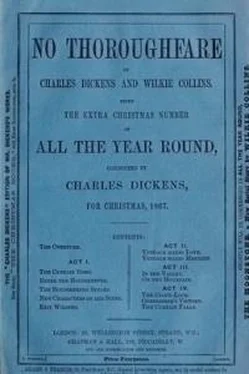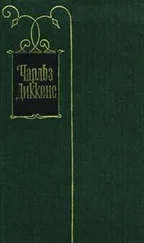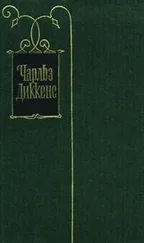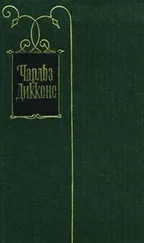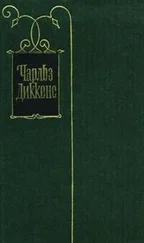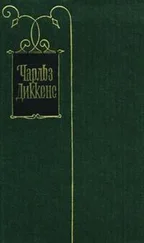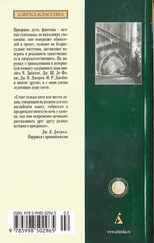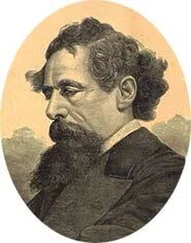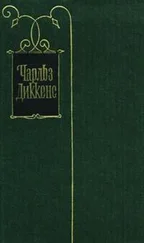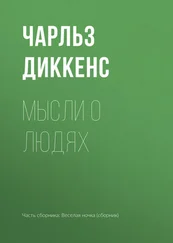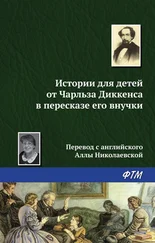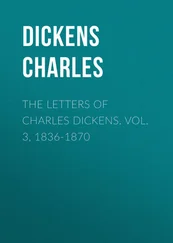Чарльз Диккенс - No Thoroughfare
Здесь есть возможность читать онлайн «Чарльз Диккенс - No Thoroughfare» весь текст электронной книги совершенно бесплатно (целиком полную версию без сокращений). В некоторых случаях можно слушать аудио, скачать через торрент в формате fb2 и присутствует краткое содержание. Год выпуска: 2014, Издательство: epubBooks Classics, Жанр: Классическая проза, на английском языке. Описание произведения, (предисловие) а так же отзывы посетителей доступны на портале библиотеки ЛибКат.
- Название:No Thoroughfare
- Автор:
- Издательство:epubBooks Classics
- Жанр:
- Год:2014
- ISBN:нет данных
- Рейтинг книги:5 / 5. Голосов: 1
-
Избранное:Добавить в избранное
- Отзывы:
-
Ваша оценка:
- 100
- 1
- 2
- 3
- 4
- 5
No Thoroughfare: краткое содержание, описание и аннотация
Предлагаем к чтению аннотацию, описание, краткое содержание или предисловие (зависит от того, что написал сам автор книги «No Thoroughfare»). Если вы не нашли необходимую информацию о книге — напишите в комментариях, мы постараемся отыскать её.
No Thoroughfare — читать онлайн бесплатно полную книгу (весь текст) целиком
Ниже представлен текст книги, разбитый по страницам. Система сохранения места последней прочитанной страницы, позволяет с удобством читать онлайн бесплатно книгу «No Thoroughfare», без необходимости каждый раз заново искать на чём Вы остановились. Поставьте закладку, и сможете в любой момент перейти на страницу, на которой закончили чтение.
Интервал:
Закладка:
"I hope not, M. Obenreizer."
"Please call me, in your country, Mr. I call myself so, for I love your country. If I could be English! But I am born. And you? Though descended from so fine a family, you have had the condescension to come into trade? Stop though. Wines? Is it trade in England or profession? Not fine art?"
"Mr. Obenreizer," returned Vendale, somewhat out of countenance, "I was but a silly young fellow, just of age, when I first had the pleasure of travelling with you, and when you and I and Mademoiselle your niece—who is well?"
"Thank you. Who is well."
"—Shared some slight glacier dangers together. If, with a boy's vanity, I rather vaunted my family, I hope I did so as a kind of introduction of myself. It was very weak, and in very bad taste; but perhaps you know our English proverb, 'Live and Learn.'"
"You make too much of it," returned the Swiss. "And what the devil! After all, yours was a fine family."
George Vendale's laugh betrayed a little vexation as he rejoined: "Well! I was strongly attached to my parents, and when we first travelled together, Mr. Obenreizer, I was in the first flush of coming into what my father and mother left me. So I hope it may have been, after all, more youthful openness of speech and heart than boastfulness."
"All openness of speech and heart! No boastfulness!" cried Obenreizer. "You tax yourself too heavily. You tax yourself, my faith! as if you was your Government taxing you! Besides, it commenced with me. I remember, that evening in the boat upon the lake, floating among the reflections of the mountains and valleys, the crags and pine woods, which were my earliest remembrance, I drew a word–picture of my sordid childhood. Of our poor hut, by the waterfall which my mother showed to travellers; of the cow–shed where I slept with the cow; of my idiot half–brother always sitting at the door, or limping down the Pass to beg; of my half–sister always spinning, and resting her enormous goitre on a great stone; of my being a famished naked little wretch of two or three years, when they were men and women with hard hands to beat me, I, the only child of my father's second marriage—if it even was a marriage. What more natural than for you to compare notes with me, and say, 'We are as one by age; at that same time I sat upon my mother's lap in my father's carriage, rolling through the rich English streets, all luxury surrounding me, all squalid poverty kept far from me. Such is my earliest remembrance as opposed to yours!'"
Mr. Obenreizer was a black–haired young man of a dark complexion, through whose swarthy skin no red glow ever shone. When colour would have come into another cheek, a hardly discernible beat would come into his, as if the machinery for bringing up the ardent blood were there, but the machinery were dry. He was robustly made, well proportioned, and had handsome features. Many would have perceived that some surface change in him would have set them more at their ease with him, without being able to define what change. If his lips could have been made much thicker, and his neck much thinner, they would have found their want supplied.
But the great Obenreizer peculiarity was, that a certain nameless film would come over his eyes—apparently by the action of his own will—which would impenetrably veil, not only from those tellers of tales, but from his face at large, every expression save one of attention. It by no means followed that his attention should be wholly given to the person with whom he spoke, or even wholly bestowed on present sounds and objects. Rather, it was a comprehensive watchfulness of everything he had in his own mind, and everything that he knew to be, or suspected to be, in the minds of other men.
At this stage of the conversation, Mr. Obenreizer's film came over him.
"The object of my present visit," said Vendale, "is, I need hardly say, to assure you of the friendliness of Wilding and Co., and of the goodness of your credit with us, and of our desire to be of service to you. We hope shortly to offer you our hospitality. Things are not quite in train with us yet, for my partner, Mr. Wilding, is reorganising the domestic part of our establishment, and is interrupted by some private affairs. You don't know Mr. Wilding, I believe?"
Mr. Obenreizer did not.
"You must come together soon. He will be glad to have made your acquaintance, and I think I may predict that you will be glad to have made his. You have not been long established in London, I suppose, Mr. Obenreizer?"
"It is only now that I have undertaken this agency."
"Mademoiselle your niece—is—not married?"
"Not married."
George Vendale glanced about him, as if for any tokens of her.
"She has been in London?"
"She is in London."
"When, and where, might I have the honour of recalling myself to her remembrance?"
Mr. Obenreizer, discarding his film and touching his visitor's elbows as before, said lightly: "Come up–stairs."
Fluttered enough by the suddenness with which the interview he had sought was coming upon him after all, George Vendale followed up–stairs. In a room over the chamber he had just quitted—a room also Swiss–appointed—a young lady sat near one of three windows, working at an embroidery–frame; and an older lady sat with her face turned close to another white–tiled stove (though it was summer, and the stove was not lighted), cleaning gloves. The young lady wore an unusual quantity of fair bright hair, very prettily braided about a rather rounder white forehead than the average English type, and so her face might have been a shade—or say a light—rounder than the average English face, and her figure slightly rounder than the figure of the average English girl at nineteen. A remarkable indication of freedom and grace of limb, in her quiet attitude, and a wonderful purity and freshness of colour in her dimpled face and bright gray eyes, seemed fraught with mountain air. Switzerland too, though the general fashion of her dress was English, peeped out of the fanciful bodice she wore, and lurked in the curious clocked red stocking, and in its little silver–buckled shoe. As to the elder lady, sitting with her feet apart upon the lower brass ledge of the stove, supporting a lap–full of gloves while she cleaned one stretched on her left hand, she was a true Swiss impersonation of another kind; from the breadth of her cushion–like back, and the ponderosity of her respectable legs (if the word be admissible), to the black velvet band tied tightly round her throat for the repression of a rising tendency to goitre; or, higher still, to her great copper–coloured gold ear–rings; or, higher still, to her head–dress of black gauze stretched on wire.
"Miss Marguerite," said Obenreizer to the young lady, "do you recollect this gentleman?"
"I think," she answered, rising from her seat, surprised and a little confused: "it is Mr. Vendale?"
"I think it is," said Obenreizer, dryly. "Permit me, Mr. Vendale. Madame Dor."
The elder lady by the stove, with the glove stretched on her left hand, like a glover's sign, half got up, half looked over her broad shoulder, and wholly plumped down again and rubbed away.
"Madame Dor," said Obenreizer, smiling, "is so kind as to keep me free from stain or tear. Madame Dor humours my weakness for being always neat, and devotes her time to removing every one of my specks and spots."
Madame Dor, with the stretched glove in the air, and her eyes closely scrutinizing its palm, discovered a tough spot in Mr. Obenreizer at that instant, and rubbed hard at him. George Vendale took his seat by the embroidery–frame (having first taken the fair right hand that his entrance had checked), and glanced at the gold cross that dipped into the bodice, with something of the devotion of a pilgrim who had reached his shrine at last. Obenreizer stood in the middle of the room with his thumbs in his waistcoat–pockets, and became filmy.
Читать дальшеИнтервал:
Закладка:
Похожие книги на «No Thoroughfare»
Представляем Вашему вниманию похожие книги на «No Thoroughfare» списком для выбора. Мы отобрали схожую по названию и смыслу литературу в надежде предоставить читателям больше вариантов отыскать новые, интересные, ещё непрочитанные произведения.
Обсуждение, отзывы о книге «No Thoroughfare» и просто собственные мнения читателей. Оставьте ваши комментарии, напишите, что Вы думаете о произведении, его смысле или главных героях. Укажите что конкретно понравилось, а что нет, и почему Вы так считаете.
